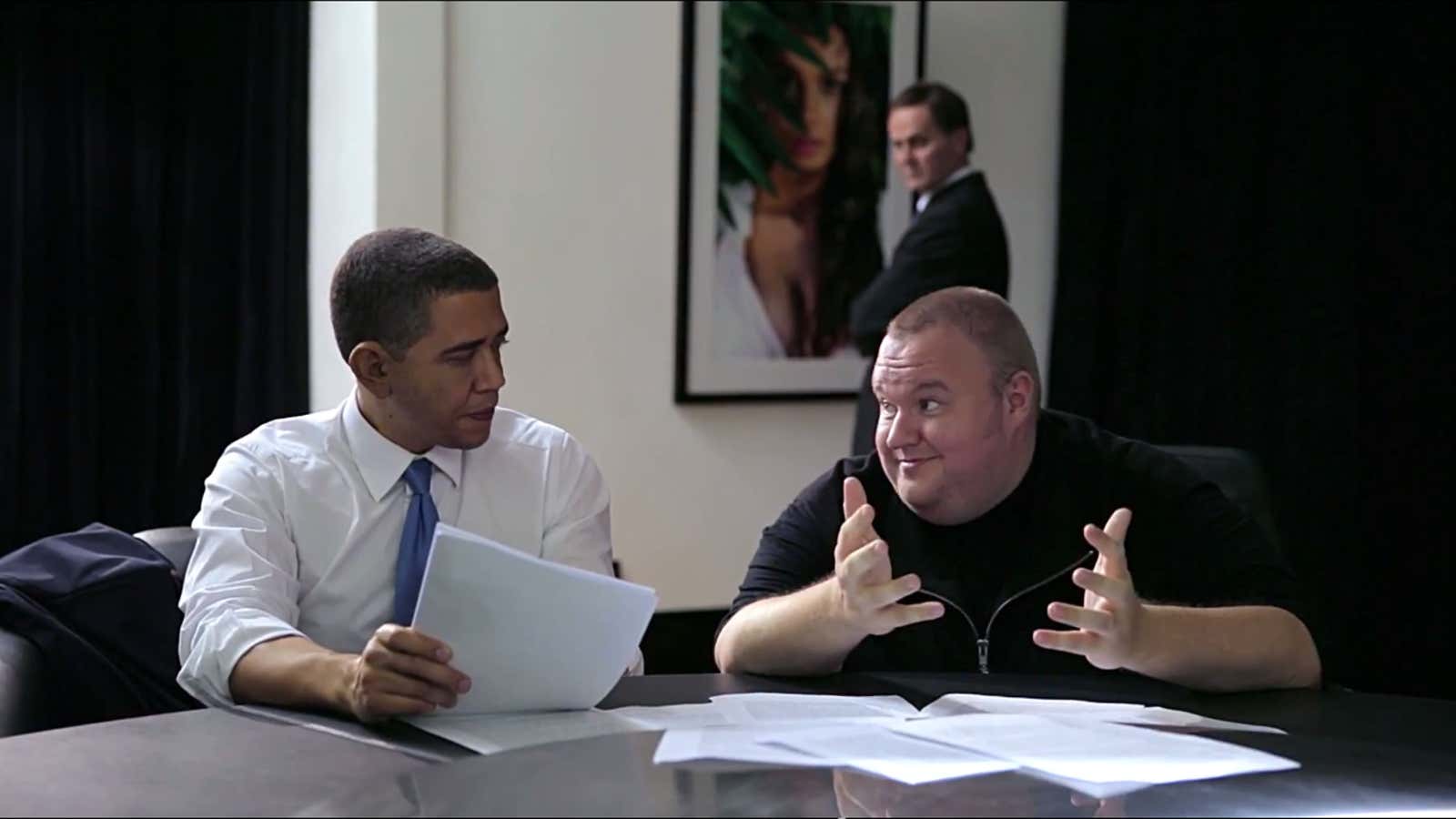Kim Dotcom is tired of being bullied by international laws, domestic harassment, and proponents of ethical business conduct, so he’s fighting back by starting his own political party.
The founder of file-sharing company Megaupload, which was shut down in 2012 for copyright violations, filed papers on April 7 with New Zealand’s election commission, listing the names of 500 supporters. It will take about six weeks for the commission to verify the signatures, after which the Internet Party can start to appear on ballots. Under New Zealand’s electoral system, it will need to earn least 5% of the vote to get candidates into parliament.
There are other cards stacked against this new party: It’s already eschewed a partnership with an established native rights party, and is at odds with the ruling National Party. But Dotcom himself is the paradox that is the key both to the party’s success and to its failure. He’s the party’s financier, thought-leader, and public face, but he can’t run for office because he’s not a New Zealand citizen. To boot, he’s facing extradition hearings from the US in July that could pull him out of the country altogether. At the very least, it could once again put Dotcom’s finances in peril.
As for politics, Dotcom claims his party is post-ideological. The platform is vague, but it doesn’t veer too far into traditional liberal or conservative issues. Mostly, it’s full of policies that would serve Dotcom’s legal and business interests.
For example, it touts copyright reform (so a future Megaupload wouldn’t get shut down), better net security (The New Zealand government spied on Dotcom in the time leading up to a 2012 raid on his mansion), and independence from foreign governments (the United States’s FBI illegally took computer equipment from Dotcom’s home).
But because he’s Kim Dotcom, there’s also some populist folk-hero stuff thrown in (cheap, limitless internet for all!), as well as some good old-fashioned Silicon-Valley libertarianism (he’s opposed to government regulation).
It makes the Internet Party sound a lot like the Pirate Parties that have flourished across Europe—or indeed the already-established New Zealand Pirate Party. Indeed the only difference between them seems to be Dotcom’s name and his superior marketing ability. But Dotcom has too much money, fame, and influence to write this off completely. Plus, his campaign video—in which Dotcom impresses ”Barack Obama” with his plans to eliminate the military, get rid of oil, and “turn water into Bitcoin”—is a good laugh.




